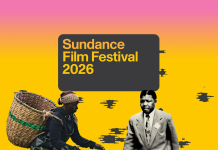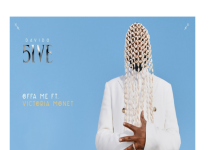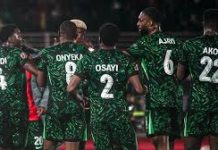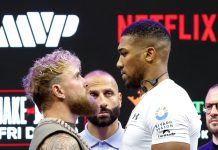The balance of power in Nigerian hip-hop is shifting.
What used to be a Lagos-dominated sound is now echoing powerfully from the Southeast — and two trailblazers are leading the charge: Jeriq and Aguero Banks.
From street slang to stadium stages, these young rappers are redefining what it means to be authentic in the new age of Nigerian music.
Their rise signals more than fame; it’s a cultural revival. It’s the sound of the East demanding its place at the table — bold, raw, and unapologetically indigenous.
Jeriq: The Trap King of the East
Born Jeremiah Chukwuebuka Ani on May 6, 1999, Jeriq has grown from Enugu’s underground rap circles into a national sensation. His breakout EP Hood Boy Dreams (2020) and the chart-topping album Billion Dollar Dream (2022) established him as a fearless storyteller of the Eastern hustle.
In December 2024, Jeriq made history by filling the 22,000-capacity Nnamdi Azikiwe Stadium in Enugu for his Jeriqhood Concert. Earlier that month, he achieved another record — becoming the first Nigerian rapper to sell out two stadiums in one month. His performances have become cultural events, bridging Igbo pride with mainstream appeal.
Musically, Jeriq blends trap beats with gritty Igbo lyricism, narrating stories of ambition, street survival, and triumph. His lyrics mirror the real struggles of youth in the East — turning pain into poetry, and rhythm into resistance.
“Afrobeat may run Lagos, but Igbo rap runs deep,” says one fan on X (formerly Twitter). “Jeriq’s music speaks to our daily lives — it’s more than rap, it’s identity.”
Aguero Banks: The Voice of the Street Renaissance
Equally unstoppable is Aguero Banks, born Chukwu Francis Chukwubuikem, a rising star who’s giving Igbo trap a bold, modern sound. The self-styled Street Prophet has carved his niche through his “Iyoo Trap” style — a fusion of Igbo drill, trap, and rap that pulses with local energy.
With projects like Pains and Sacrifice and The Hero (Ọnyịkọ), Aguero Banks captures the grit and determination of the streets. His collaboration with Phyno on “Still Sober” and “Hero” earned him national attention, while his hit single “Akwa Ego” became a regional anthem.
In 2025, Aguero Banks bagged the Galaxy Music Award for Best Rap Single, beating veterans like Phyno and Vector — a clear signal that the East’s new school is here to stay.
“Aguero Banks is the truth,” notes Pulse Nigeria. “He’s blending traditional Igbo street energy with the pulse of global trap — something fresh, something powerful.”
A Movement Bigger Than Music
What Jeriq and Aguero Banks represent goes beyond talent — it’s a movement of identity and pride. Their success marks a renaissance for Eastern Nigeria’s creative scene, a region long overshadowed by Lagos’ commercial dominance.
They’re proving that rap in local language can cross borders, that authenticity sells, and that the next big sound from Nigeria may not come from Afrobeats — but from Afrotrap and Igbo rap.
Their fan bases are massive, their streaming numbers are climbing, and their shows are selling out. From Enugu to Abuja and beyond, their sound is fast becoming a national phenomenon.
The Future of Nigerian Hip-Hop Is Multilingual
The rise of Jeriq and Aguero Banks has rewritten the rules of Nigerian rap. The new generation isn’t just copying Western styles — they’re infusing language, culture, and locality into modern hip-hop.
As the East Coast wave continues to gain traction, one truth remains clear: if Jeriq and Aguero Banks aren’t on your radar, you’re already behind the curve.
They’re not just rappers; they’re revolutionaries — rewriting the rhythm of Nigerian hip-hop, one Igbo verse at a time.
































